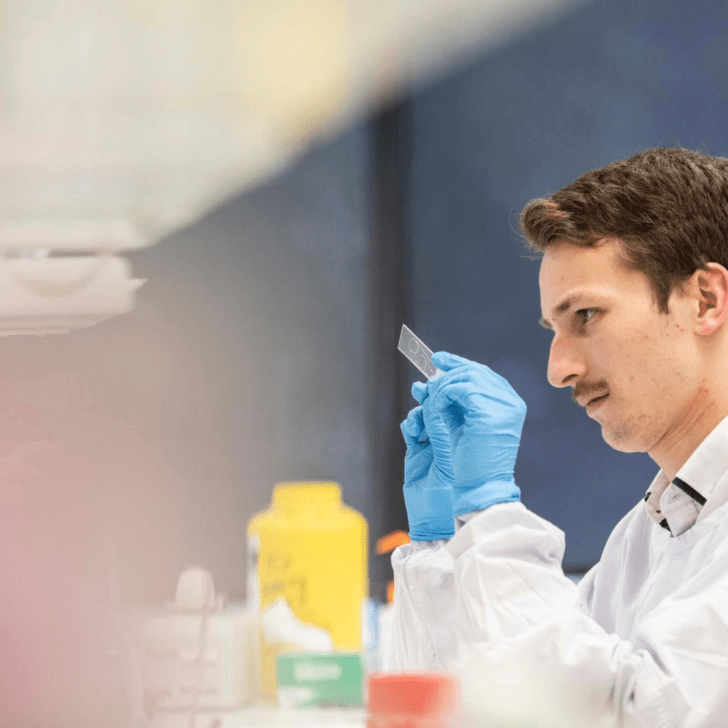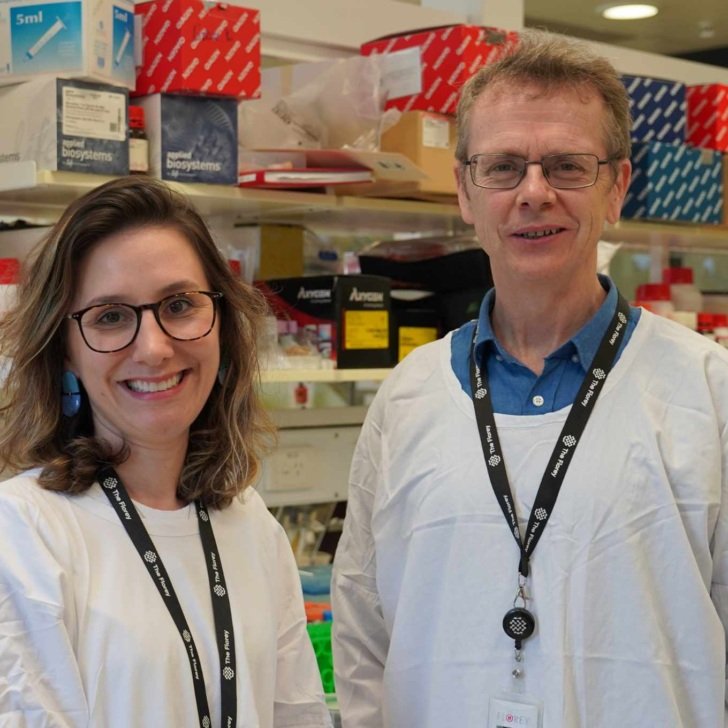
Huntington’s disease
Huntington’s disease is a neurological condition which gradually effects a person’s physical, emotional and cognitive function. It is caused by a variation (‘genetic stutter’) in a person’s genome, which is passed down from parent to child. The symptoms of Huntington’s usually develop as a person approaches middle age and gradually worsen over time. Symptoms typically begin with jerky movements or twitching known as ‘chorea’.
If a person’s parent has Huntington’s, they have a 50 percent chance of inheriting the gene mutation causing the disease. There is currently genetic testing available to see if an individual has inherited the gene variation from their parent or not before symptoms appear. Once symptoms begin, the life expectancy for someone with Huntington’s is a further 10 to 25 years, although quality of life may be severely affected, particularly in later stages of the disease. However, approximately five per cent of patient’s have juvenile onset, which progresses far more rapidly.
How The Florey is making a difference
Our research into Huntington’s disease, led by Professor Anthony Hannan and colleagues, has shown for the first time that depression can be modelled, and is reduced by enhanced mental and physical activity. We have also identified key molecules involved in the cognitive symptoms (culminating in dementia) and psychiatric elements (the most common of which is depression) of the disorder.
As well as providing the first evidence that mental and physical activity can be beneficial, we have also shown that high levels of chronic stress can be detrimental. Furthermore, we have successfully tested new preclinical therapeutic approaches, which will be taken into new clinical trials. This will have implications not only for this disease, but also for the understanding and treatment of dementia and depression in the wider community.
Research projects
- Biological inorganic chemistry of copper in the early ubiquitination pathways
- Experience-dependent plasticity modulating cognitive deficits in schizophrenia
- Gene-environment interactions modulating dementia and depression in a tandem repeat disorder
- Modulating metals homeostasis to treat neurodegenerative and psychiatric disorders
- Therapeutic approaches to dementia and depression in Huntington’s disease
More information
Further information can be accessed through the Better Health Channel, Huntington’s Victoria on 1800 063 501, or through the Huntington’s organisation in your state.
Latest news
Latest Florey news on Huntington’s disease







